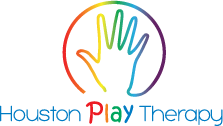Over the course of the last year, we have all had to have many conversations with our children that we may never thought we would have to. Clinicians at Houston Play Therapy want to continue to help support parents, teachers and adults in navigating these difficult conversations. Below you will find some tips/ strategies created by the Child Mind Institute to help navigate discussions with your child(ren) based on their age and developmental level. The direct article in which this information is from is linked as well.
Helping Kids Understand the Riots at the Capitol
From the Child Mind Institute
For Younger Children:
1. Stay Calm: While younger children may be less likely to understand what is taking place on the news or on television, they may pick up on your anxiety. Ensure you are in a headspace where you are able to talk to your children; if needed, take a quiet minute to yourself before engaging in these discussions.
2. Use developmentally appropriate language
3. Reassure your child(ren) that they are safe
4. Note aspects of positive as well: The Fred Rogers quote often comes to mind when disturbing or scary events were shown on the news: “When I was a boy and I would see scary things in the news, my mother would say to me, “Look for the helpers. You will always find people who are helping”.
For Older Children:
1. Model calm, rational responses to help them talk through their fears/worries
2. Provide them opportunities to tell you what they saw and ask questions. Get a sense of what they are thinking.
3. Validate their feelings: “This is really scary to see. Let’s talk about it”.
4. Discuss the responses: Ensure you are also discussing those who responded appropriately.
5. Check in with kids frequently.
6. Limit exposure to the news: Keep routines in place, continue doing things as a family.
For Teenagers/Young Adults:
1. Validate: Let them know that it is normal to be angry, sad or frightened when witnessing injustice.
2. Discuss appropriate ways for teens to channel their emotions and fight for what they believe in: For example, can they get involved in community organizations? Raise money or volunteer for a cause they care about?
3. Discuss their own media consumption in order to provide them with a sense of control/safety: Where do they get their news? How do they know which information to trust? When do they give themselves space / time away from the news?
Source: Child Mind Institute: Helping Kids Understand the Riots at the Capitol: https://childmind.org/blog/helping-kids-understand-the-riots-at-the-capitol/
Additional articles and resources are provided below:
*Supporting Marginalized Students in the Context of the 2020 Election: https://www.nasponline.org/resources-and-publications/resources-and-podcasts/diversity-and-social-justice/social-justice/supporting-marginalized-students-in-the-context-of-the-2020-election-tips-for-parents?utm_content=bufferd5d9d&utm_medium=social&utm_source=facebook.com&utm_campaign=buffer&fbclid=IwAR1DNYyFe8gwguAHB_1AJAwOrM6jDrL-Z_6Wo_UnI4aMGZSC9lrWD-JyEns
*NPR: How to Talk to Kids About the Riots at the U.S. Capitol: https://www.npr.org/sections/congress-electoral-college-tally-live-updates/2021/01/07/954415771/how-to-talk-to-kids-about-the-riots-at-the-u-s-capitol
Please do not hesitate to reach out with any thoughts or questions.
Link to article: https://childmind.org/blog/helping-kids-understand-the-riots-at-the-capitol/
